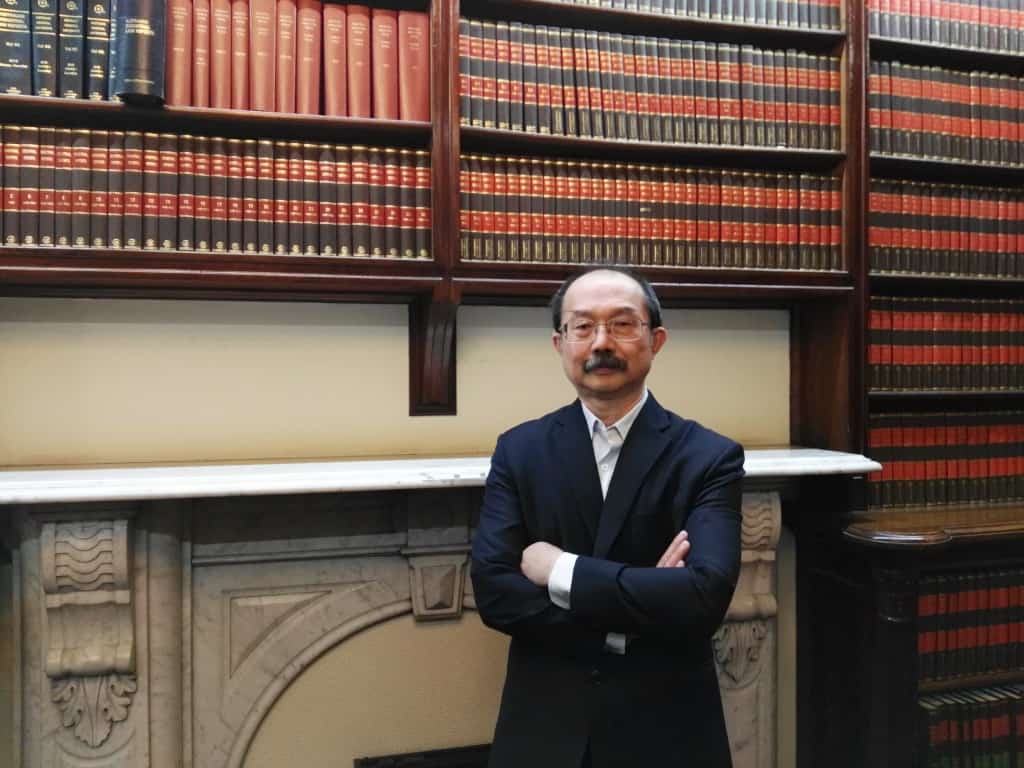
Schedule 3 Partner Visa – if you are in Australia without a valid visa, you may still apply for a Subclass 820 Partner Visa (click here to learn more). However, at the time of your application you must either:
- entered Australia:
- as a holder of a Subclass 995 (click here to learn more) or as you are a SOFA (Status of Forces Agreement between Australia and France, Malaysia, NZ, PNG, Philippines, Singapore, Turkey or the USA) member or SOFA forces civilian component member and held a special purpose visa holder; and
- satisfies Schedule 3 criterion 3002;
Or
- satisfied Schedule 3 criteria 3001, 3003 and 3004, unless the Minister is satisfied that there are compelling reasons for not applying those criteria
If you are in Australia and you do not hold a substantive visa, you must lodge your Partner visa application within 28 days of your last visa expiring. If you last substantive visa has ceased more than 28 days before you applied for the visa, then you will not meet the Schedule 3 criterion 3001. If you do not satisfy criterion 3001, then the Minister must be satisfied that there are compelling reasons for not applying the Schedule 3 Partner visa waiver.
So, what does “compelling” mean? Compelling reasons is not defined in the Migration Act 1958 or Migration Regulations 1994. In MZYPZ v Minister for Immigration and Citizenship (2012) 127 ALD 510 at [10] and Babicci v MIMIA (2005) 141 FCR 285 at [24] said that compelling reasons “should be sufficiently convincing to move the decision-maker to exercise its discretion to waive the requisite criteria and the circumstances must be sufficiently powerful to lead a decision-maker to make a positive finding in favour of waiving the required criteria”.
The Schedule 3 Partner visa requirements impose certain restrictions on unlawful non-citizens who apply in Australia for a Partner visa on spouse or de facto partner grounds. However, the waiver provision recognises the hardship that can result if the unlawful non-citizen is obliged to leave Australia and apply from overseas. The Explanatory Statement to the Migration Regulations (Amendment) 1996 (No. 75) which introduce the waiver provision (cl. 820.211(2)(d)) provides the following as reasons of “strongly compassionate” nature:
- where there are Australia-citizen children from the relationship; or
- where there is already a long-standing relationship which has been in existence for 2 years or longer
In the above examples, the Schedule 3 Partner visa waiver may be justified by the hardship which could result if the Schedule 3 criteria were not waived.
So, if your last substantive visa has expired more than 28 days ago can you ask your partner to have a child so that you can have the Schedule 3 criteria waived?
In Singh v Minister for Home Affairs [2020] FCAFC 7, Mr Singh:
- first came to Australia on 8 May 2009 on a Student visa (expired on 1 September 2011
- on 22 July 2011, he applied for a Subclass 485 visa (click here to learn more) which was refused. He appealed that decision to the Tribunal on 19 February 2015. On 12 January 2016, the Tribunal agreed with the Department not to grant him the Subclass 485 visa.
- on 12 April 2013, he applied for a Subclass 866 Protection visa (click here to learn more) which was refused. He then applied to the Tribunal on 10 March 2014, but the decision was affirmed on 22 September 2014.
- on 28 October 2014, he sought ministerial intervention but on 9 March 2015 the request was refused.
- on 4 February 2016, he again sought ministerial intervention which was refused on 11 April 2016.
- on 23 June 2016, he applied for a Partner Subclass 820 visa
- on 20 October 2016, the Department refused to grant him the Partner visa because he did not satisfy cl. 820.211(2)(d) (no compelling reasons to waive Schedule 3 Partner visa)
- On 4 November 2016, he applied to the Tribunal which was affirmed He and his partner offered the following as compelling reasons:
- he and his wife are from different castes
- his parents are unhappy with his marriage
- he will suffer mental and emotional abuse and stress
- his wife will be forced to marry another
- both will face trouble from other relatives
- they have a child to their relationship (just before the hearing)
- his wife claimed that she relied on him for emotional support, financial support for their child and companionship
- the best interests of their child are a mandatory relevant consideration (MIEA v Teoh (1995) 183 CLR 273; Art. 3 of the UN Convention on the Rights of the Child – CROC)
In Singh’s case, his last substantive visa (which was a Student visa) expired on 1 September 2011. Hence, on 23 June 2016 when he applied for the Partner visa, his Student visa has ceased for more than 28 days.
The Tribunal’s reasons for affirming the Department’s decision not to grant him a Partner visa because:
- the Tribunal asked them why, in their circumstances, i.e. they have limited financial resources and his wife was uncertain of her stay in Australia, they decided to have a child.
- his wife stated that he is 30 (born in 1987) and was unwilling to use contraception for fear of being unable to conceive in the future
- Singh claimed that the pregnancy was not planned, but “just happened”
- the Tribunal accepts that they want to have a family but is of the view that they were motivated to have a child to provide a compelling reason to waive the Schedule 3 criteria.
- the Tribunal found them to be articulate and aware of visa conditions, including the Subclass 485 and Subclass 866 Protection visas that Singh previously applied.
- Singh acknowledged that both the Subclass 485 and Subclass 866 applications were ill-founded
Having a child to bolster Schedule 3 waiver is not compelling reason
In summary, the Tribunal said:
- they chose to have a child in the full understanding that Singh was not the holder of a substantive visa and that he might have to go offshore to lodge his Partner visa application
- the timing of his wife’s pregnancy was to bolster his visa application, that is, having a child to provide a compelling reason to waive the Schedule 3 criteria
- it did not accept that the birth of their Australia-citizen child is a compelling reason to waive the Schedule 3 criteria
- it accepted that Singh does not want to be separated from his daughter during the 1st year and 2nd years of her life, the time it could take to process an offshore Partner visa from India
- it was not satisfied that his wife could not accompany him to India or spend time with their daughter in both India and Australia.
Longstanding relationship may not be compelling
Having a long-term relationship with your sponsor in itself does not constitute a compelling reason for waiver of the Sch 3 criteria: Singh v Minister for Immigration & Anor [2019] FCCA 2337 at [45]. The fact that a long-term relationship is a matter which is strongly compassionate in nature, does not inevitably make it a compelling reason, and whether it is a compelling reason or not is a matter for the decision-maker to determine as part of its fact-finding. Similarly, not wanting to be separated from your sponsor is necessary a compelling reason to waive Sch 3. You should be aware that the Department Policy or PAM3 identified the existence of a long-standing relationship as a compelling reason. Policy, including PAM3 or any other Policy is not a binding document and is no more than a procedural and policy guideline to decision-maker applying the Migration Act and the Migration Regulations (El Ess & Anor v MIMIA [2004] FCA 1038).
You should note that the reasons for not applying the Sch 3 criteria may appear compelling to one person and not to another. The waiver decision will always involve a subjective judgement (McNamara v MIMIA [2004] FCA 1096 at [10]). In the evaluative judgement, the decision-maker may consider a single circumstance or a multitude of circumstances. Ultimately, the question whether to waive Sch 3 or not is whether the circumstances as a whole compel the decision-maker to exercise the discretion to waive. The decision-maker needs to be ‘satisfied’ that compelling reasons exist.
Un-enacted International Treaty Obligation not mandatory consideration
In Kaur v MIBP (‘Kaur’) (2017) 256 FCR 235 the FCFCA said that whether or not there were compelling reasons to waive the Schedule 3 criteria was a fact finding exercise which did not create an obligation to consider the best interests of a child (cited in Singh at [34]). The Full Court also held that an un-enacted international treaty (e.g. CROC) obligations were not mandatory relevant considerations. And if not considered would attract judicial review for jurisdictional error In Le v MIMIA [2004] FCA 875) at [59] French J stated that unless a particular international obligation is incorporated into domestic law it does not impose any condition on the exercise of power by the executive nor any substantive obligation to conform to that international obligation when exercising power. Furthermore, the principle in Teoh has no application to the exercise of a non-discretionary power.
In Kaur, the Full Court also said that even if the Tribunal chose to consider CROC did not render that matter a mandatory consideration. And even if the Tribunal misapplied the principles in CROC would not invalidate any subsequent decision. The Full Court also said that Schedule 3 Partner visa waiver is a 2 stage process:
- whether there were ‘compelling circumstances that affect the interests of Australia
- whether the discretion should be exercised to waive the requirements
More importantly, it was held that there was no obligation on the decision-maker to consider CROC and no obligation to give notice that it would not be considering it.
There is no obligation on the decision-maker to take into account as a mandatory consideration, in ascertaining whether “compelling reasons” existed, the interests of Singh’s child or to make the interests of his child a primary consideration.
No discretion but must be satisfied that compelling reasons exist
Derrington J in Singh said at [61] that “there is no discretionary power to waive Schedule 3 Partner visa requirements. Clause 820.221(2)(d)(ii) simply requires an assessment be made as to the existence of compelling reasons for not applying the Schedule 3 criteria. If satisfied there are, the exception will apply. If the required state of satisfaction is not reached, the requirement will not be met.
Motivated to have a child to provide compelling reason to waive Schedule 3
If you have a child when your personal circumstances (financial issues, uncertain about future in Australia) do not permit and/or you believe it will help your visa application and/or you have previously unsuccessfully applied for other visas, the decision-maker does not required to refuse your application on the balance of probabilities, he or she is entitled to reach its conclusion as to the motivation of you having a child is based on the circumstances of the case despite your subjective reasons to the contrary.
The Full Court in Singh said that the Tribunal did not rely upon the deliberate attempt by Singh and his wife to have a child as a reason for rejecting the existence of compelling circumstances. The Tribunal relied upon the more benign circumstances that they were aware at the time they decided to attempt to have a child that Singh might have to make an application offshore.
Logan J in Singh said that the Explanatory Statement and Explanatory Memorandum (having Australian-citizen children and long-term relationship giving rise to compelling reasons to waive Schedule 3) cannot be substitute or proxy for its text of a statute. And there is noting in the text of the regulation which makes it necessary, in order to give it meaning, requiring the existence of an Australian citizen child be given primacy or that compelling circumstances exist.
Australian migration law is complex and difficult to understand, contact our immigration lawyer for a consultation (fee applies) to help you decide if you are able to satisfy the Schedule 3 Partner visa requirements.

 041 222 4020 or WeChat: AUDvisa
041 222 4020 or WeChat: AUDvisa
This article is not intended to be or taken as migration legal advice. The author of this article disclaims any liability for any action or omission on the information provided or not provided in this article. You should always consult an immigration lawyer or a registered migration agent to form an informed opinion on your immigration matter.



